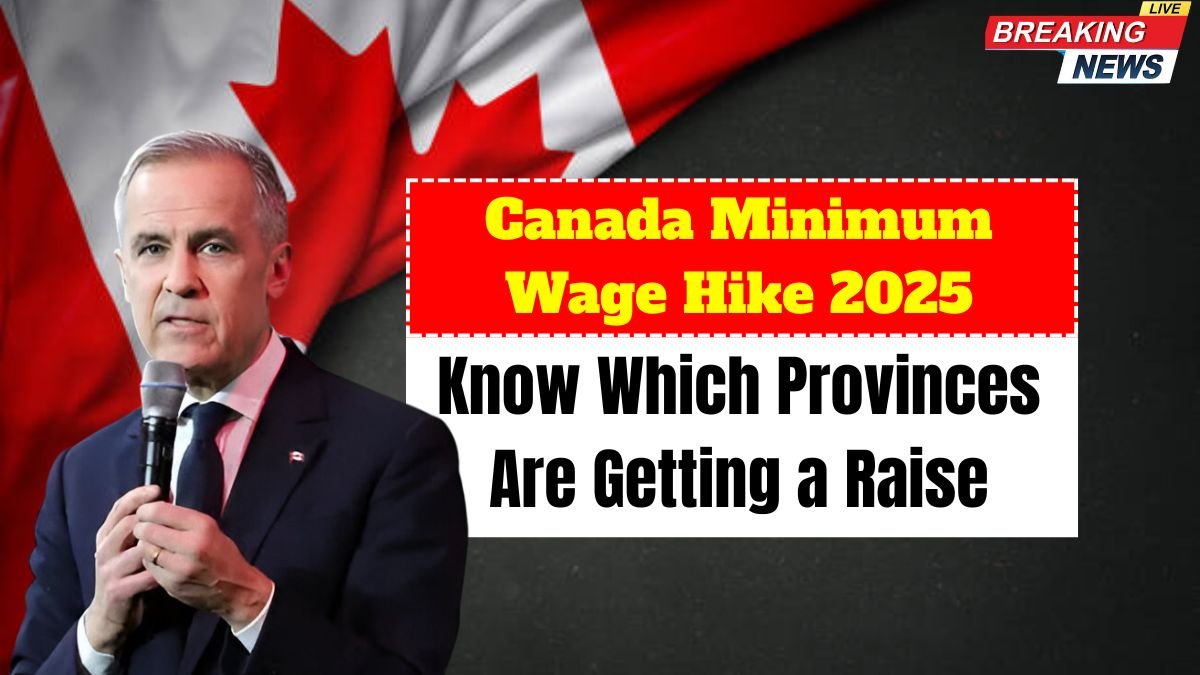Introduction: Canadian soil bears a very unique concern for the social-economic security and quality of living of all its working citizens. Amongst several other developed nations in the world, Canada Minimum Wage is ranked at the top in terms of economic development; the economy is still flourishing, and the government also takes care of factors such as workers’ rights and income. In this world scenario, the changes are very rapid, and inflation seems to be rising constantly whether it is food prices, rent, gas, or transportation. Hence, considering all of these, it has become all the more important for the minimum wage to be increased from time to time.
Keeping the above in mind, the Canadian government and many others at the provincial level have announced a hike in the minimum wage in the year 2025. The step that the government is taking surely turns out to be a boon for the labor section. But it also leaves a positive impact on the economy overall.
What is the minimum wage in Canada, and why is it necessary or important?
Minimum wage amounts to the least possible money that an employee should earn for every hour spent doing his job. The whole premise of requiring minimum wages for workers is to ensure that they can afford the basic necessities of life like food, shelter, clothes, and the like.
The minimum wage is not uniform across Canada.
Each province and territory determines the minimum wage their workers should receive.
These rates are determined by several key factors:
- Inflation
- Cost of living
- Local employment market
- Consumer Price Index (CPI)
Economic growth
- Canada’s structure is such that each province’s economic situation and expenses very.
- Yukon has a higher cost of living, so wages are higher.
- Some provinces in Atlantic Canada face greater economic challenges, so their wages are slightly lower.
- For this reason, a uniform minimum wage model is not applicable across Canada.
How is the minimum wage determined?
A key factor in raising the minimum wage in Canada is the CPI (Consumer Price Index). The CPI measures the rising prices of everyday items The government and the Department of Labor use the CPI to determine whether wages should be raised enough to keep pace with inflation.
In addition to the CPI, several other factors are also considered:
- Cost of Living: In areas where rent and food are expensive, wages are kept high.
- Business Sustainability: The government ensures that businesses can absorb wage increases to prevent job losses.
- Reducing the Poverty Rate: Raising the minimum wage improves the situation of low-income families.
Major changes are expected for minimum wage come 2025?
2025 is envisioned to be the year of reckoning for Canadian laborers. Some provinces have already declared wage increases, and others are still mulling over increases according to the CPI.
The following are the national projections for 2025:
| Category | Description |
|---|---|
| National Average Minimum Wage (2024) | $17.30 per hour |
| Projected Wage in 2025 | Approximately $17.89 per hour |
| Effective Date of Increase | From April 1, 2025 |
| Estimated Percentage Increase | 3.4% |
| Basis of Increase | Inflation (CPI) |
What benefits will a minimum wage increase bring?
Increasing the minimum wage doesn’t just make a difference of a few dollars—it can make a significant difference to any family’s financial situation
Increase in Income
Let’s say your salary increases by $0.60 per hour, and you work 40 hours per week:
- Additional income per month: $96
- Per year: $1150–$1200
- This amount can help with expenses like rent, childcare, groceries, or gas.
Increased spending in the local market
People will spend more → Businesses will grow → Employment will increase.
Improves Quality of Life
- Increasing the Minimum Wage
- Reduces Poverty Rates
- People Can Access Better Healthcare
- Reduces Financial Pressure
Could It Also Have Disadvantages?
- Burden on Small Businesses: Some small businesses may feel financial pressure due to rising wages.
- Prices of some services may increase: which may cause consumers to experience some inflation.
- Limited Employment Growth: Some businesses may reduce hiring to save costs.
- However, research proves that raising the minimum wage strengthens the economy in the long run.
Why is this wage increase important?
In Canada in 2024 and 2025:
- Rent
- Groceries
- Fuel
- Utilities
- All have seen record-breaking increases
- Workers’ incomes should not lag behind inflation
- This policy also helps reduce poverty
According to the government, this 2025 wage increase will:
- Economic stability
- Equal opportunity
- Worker security
- Balancing all three.
Conclusion
2025 is poised to be a year of promise for millions of Canadian workers. This minimum wage increase will provide them with financial security in the face of inflation While there may be some challenges, such as rising costs for small businesses, overall this move will make Canadian society stronger and more balanced For those with lower incomes, this increase could prove life-changing because every dollar counts and this policy proves that Canada always stands with its workers.
FAQs
Q1. Which provinces are increasing minimum wage in 2025?
A. Several provinces including Ontario, Yukon, New Brunswick, Nova Scotia, and Newfoundland & Labradorare raising their minimum wage in 2025.
Q2. When will the new minimum wage rates take effect?
A. Most increases begin on April 1, 2025, while others roll out between May and October 2025 depending on the province.
Q3. What is the national average minimum wage expected in 2025?
A. Canada’s average minimum wage is projected to rise to approximately $17.89 per hour in 2025.



